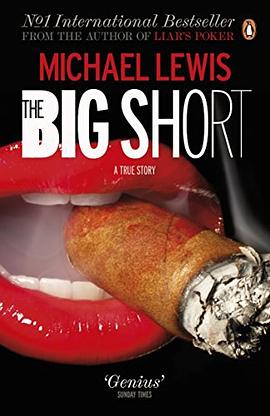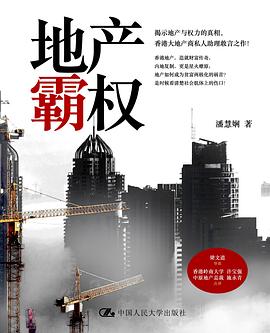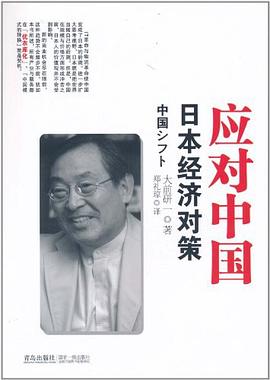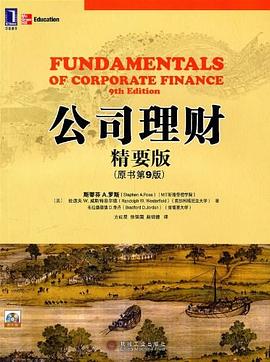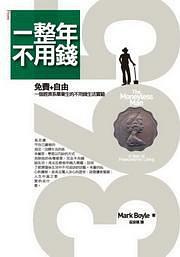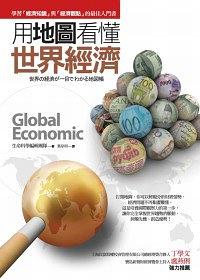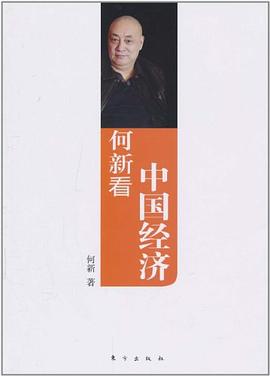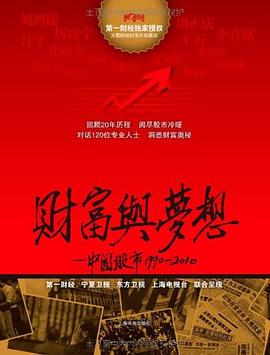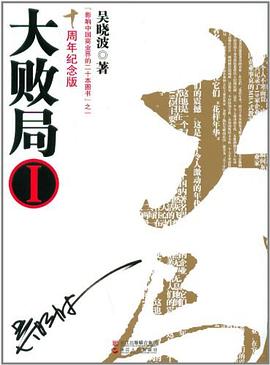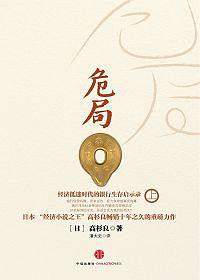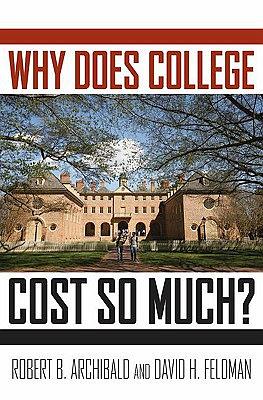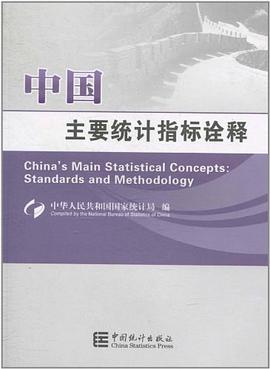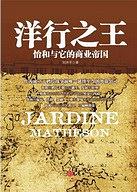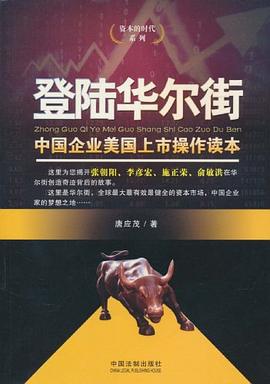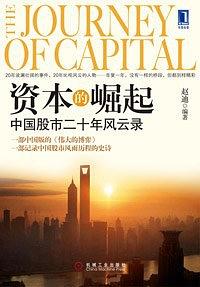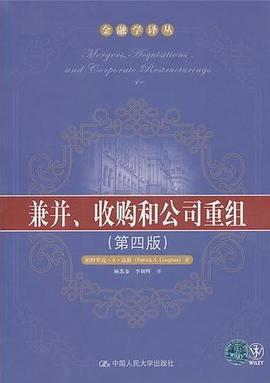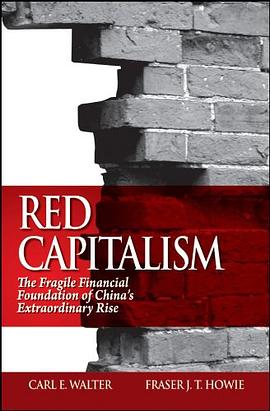

具体描述
For many years now China's economy has seemed unstoppable. A slow appreciation of the renminbi in 2007 brought wave upon wave of liquidity into China and allowed its companies and banks to raise hundreds of billions in dollars via stock market listings. State banks that had started the new century as bankrupt relics of a communist past became the darlings of international investors.
Even the collapse of Lehman Brothers in 2008 and the ensuing global financial crisis seemed to have little impact on China as the government quickly responded with a huge stimulus package. But the Lehman collapse was a dramatic wake up call to the Chinese leadership. This model of bank and capital market reform had been studiously emulated for more than a decade and had brought great benefits to China. But now, although they believed it to be bankrupt, the Chinese government were bereft of new ideas. In the face of the global financial crisis the government returned to what it knows best, massive state intervention via the banking system. Ten years of banking and capital market reforms were dead.
In Red Capitalism, Carl Walter and Fraser Howie detail how the Chinese government reformed and modeled its financial system in the 30 years since it began its policy of engagement with the west. Instead of a stable series of policies producing steady growth, China's financial sector has boomed and gone bust with regularity in each decade. The latest decade is little different. Chinese banks have become objects of political struggle while they totter under balance sheets bloated by the excessive state-directed lending and bond issuance of 2009.
Looking forward, the government's response to the global financial crisis has created a banking system the stability of which can be maintained only behind the walls of a non-convertible currency, a myriad of off-balance sheet arrangements with non-public state entities and the strong support of its best borrowers--the politically potent National Champions--who are the greatest beneficiaries of the financial status quo.
China's financial system is not a model for the west and, indeed, is not a sustainable arrangement for China itself as it seeks increasingly to assert its influence internationally. This is not a story of impending collapse, but of frustrated reforms that suggests that any full opening and meaningful reform of the financial sector is not, indeed cannot be, on the government's agenda anytime soon.
作者简介
卡尔. 沃尔特, 在中国生活了20年,并积极参与了多项金融改革工作,他在1992年的中国企业首例海外IPO和1994年首批中国国有企业在纽约证券交易所上市过程中发挥了重要作用。他是中国第一家也是最成功的合资投资银行——中国国际金融有限公司的管委会成员,在那里,他支持了一批中国主要企业的股票和债券的发行。最近,他帮助全球主要投资银行创建了最成功和最有利可图的安全货币交易业务。他能说流利的普通话,毕业于北京大学,并拥有普林斯顿大学博士学位。现居纽约,是独立顾问。
弗雷泽. 豪伊, 曾在剑桥大学学习自然科学(物理),在北京语言文化大学学习中文。近20年来他一直从事亚洲股票交易和市场的分析、写作,同时在香港工作,在信托银行和摩根士丹利从事股权交易。1998年到中国,在中国国际金融有限公司销售和交易部门工作,后进入中国 M&A 管理公司。他曾加盟南华早报、亚洲华尔街日报、中国经济研究季刊和中国经济评论,并为CNBC、BBC、半岛电视台和彭博社撰写评论。他是一家帮助国际投资者在印度和中国市场投资的新加坡亚太经纪公司的董事总经理。
祝捷,特许金融分析师(CFA)。先后就读于中国人民大学、北京大学光华管理学院、纽约大学斯特恩商学院,获工商管理硕士学位。曾就职于中国建设银行、中国金融期货交易所,兼职于北京懋源投资有限公司、中银国际(亚洲)有限公司。现任渣打银行(中国)有限公司投资策略分析师。
刘骏,特许金融分析师(CFA)和注册风险管理师(FRM)。先后就读于南京大学、耶鲁大学、约翰·霍普金斯大学商学院,获经济硕士、金融理学硕士学位,曾就职于中国银行、世界银行总部,现在加拿大联邦住房及信贷公司工作。
目录信息
读后感
《红色资本》绝对是本冷门好书,这还是无意中在豆瓣读书上乱点链接点出来的,当时看完介绍和评分后果断下单。书到手后读完发现果然不俗,只能说对豆瓣的联想功能越来越有好感。 别看《红色资本》这书名挺主旋律的,但书其实是两位歪果仁写的,据说其中一位还在中国待了二十多...
评分每周一书,第十四期(20131122):《红色资本主义——中国的非凡崛起与脆弱的金融基础》。 一、整体观感: 1、中国金融体制的历史十分值得一读,也就是说这本书除了和上本老董事长高坚的《How China Grows:Investment,Finance,and Reform》一并推荐外,还可以一并看看刘鸿儒...
评分全书前七章只是对第八章的一个铺垫。第八章的内容基本上喜欢中国政治的都略知一二,但是经过前七章的铺垫会使你之前了解的更加重两个数量级。另外最后一句话道出了本书的真谛,其实贵国哪有什么金融,只不过是好听罢了。随着人口红利的越来越小,随着国际局势的日益复杂,那么...
评分每周一书,第十四期(20131122):《红色资本主义——中国的非凡崛起与脆弱的金融基础》。 一、整体观感: 1、中国金融体制的历史十分值得一读,也就是说这本书除了和上本老董事长高坚的《How China Grows:Investment,Finance,and Reform》一并推荐外,还可以一并看看刘鸿儒...
评分“有中国特色的资本论”。 没有比作者在结尾的这句话更适合做本书的副标题了! 两个外国人,用朴实无华的语言,把红色资本的内在运行逻辑解释得一清二楚,实在是了得;加上翻译准确,强烈推荐之! 只是读完后悲凉无比。。。
用户评价
老实说,刚拿到这本书的时候,我对它的内容有点摸不着头脑。毕竟,“红色资本主义”这个词组本身就带着一种强烈的张力,让人难以轻易捕捉其核心。我猜测,它或许是在探讨一种独特的经济模式,一种将某些传统的社会主义元素与现代资本主义的效率和活力相结合的产物。这本书的名字,就像一个精心设计的谜语,吸引着你去寻找答案。我希望作者能够带领我穿越迷雾,去理解这种“红色”究竟体现在何处,它与我们熟知的“资本主义”又有什么样的融合与碰撞。是否是对市场经济新模式的探索,还是对某种政治哲学在现实经济实践中的体现?我对它的期待,更多的是一种对未知领域的探索欲,希望能在这本书中找到一种全新的理解世界经济运行的方式,尤其是在当前全球化背景下,各种经济模式都在经历深刻变革的时代。我期待它能提供一些独到的见解,帮助我理解那些正在发生的、令人眼花缭乱的经济现象,以及它们背后可能存在的逻辑和驱动力。
评分这本书的名字——“红色资本主义”,光是这四个字就足以勾起我强烈的好奇心。我脑海中浮现出无数的画面和设想:是关于中国经济崛起的神话,还是对市场经济与共产主义理想之间复杂纠葛的深刻剖析?抑或是对全球资本主义体系在意识形态领域进行的反思?我迫不及待地想要翻开它,去探寻这背后隐藏的宏大叙事。我知道,一旦踏入这本书的领域,我将不仅仅是在阅读,更像是在进行一次智力探险,挑战我对经济、政治和历史的固有认知。我期待作者能够用一种引人入胜的方式,将那些可能枯燥的理论和事实,编织成一幅波澜壮阔的画卷,让我能够在这幅画卷中看到前所未有的视角,理解那些影响世界的巨大力量是如何运作的。这本书的名字,就像一个悬念,让我迫不及待地想要揭开它神秘的面纱,去发现隐藏在“红色”与“资本主义”这两个看似矛盾的词汇背后,所蕴含的深邃思想和深刻洞察。它是否会颠覆我的某些既定观念?是否会为我打开一扇新的思考之门?我准备好了,用我全部的注意力,去迎接这本书可能带来的震撼。
评分“红色资本主义”,这个书名就像一道闪电,瞬间击中了我的求知欲。它预示着一场关于经济和意识形态的深刻对话,一场关于传统与现代、理想与现实的碰撞。我好奇,作者将如何解读这个充满矛盾却又极具吸引力的概念。它是否是对某种经济模式的创新性命名,还是对某种历史现象的全新视角?我期待这本书能够带领我深入探索,理解这种“红色”的内核是如何与“资本主义”的齿轮巧妙啮合,催生出一种新的经济活力和发展模式。这其中必然伴随着复杂的挑战和深刻的社会变革,而我渴望在这本书中找到关于这一切的答案。这本书的名字,就像一个引人入胜的标题,承诺着一场思想的盛宴,让我迫不及待地想要沉浸其中,去发现那些隐藏在字里行间的智慧和启示。
评分当我看到“红色资本主义”这个书名时,我的脑海里立刻闪过一连串的联想。这是一个充满戏剧性的词组,它暗示着一场深刻的变革,或许是对既有经济体系的颠覆,或许是对两种截然不同理念的奇妙结合。我猜测,这本书会深入探讨,在当今全球化的浪潮中,一些国家是如何在保留其政治意识形态的“红色”基因的同时,又拥抱了资本主义的市场机制,并且取得了非凡的成就。这其中的复杂性,以及由此产生的各种矛盾和张力,无疑是本书值得探索的重点。我期待作者能够以一种冷静而又富有洞察力的笔触,为我揭示这种“红色资本主义”的运作模式、历史渊源以及它对全球政治经济格局所产生的深远影响。这本书的名字,就像一声号角,召唤我去审视那些正在重塑世界的经济现象,去理解那些隐藏在表象之下的深刻力量。
评分“红色资本主义”——这个书名本身就足够吸引人,它激起了一种想要了解其背后逻辑的冲动。我设想,这本书可能在探讨一种超越传统意识形态界限的经济形态,一种融合了不同社会制度精髓的创新模式。我非常好奇,作者会如何描绘这种“红色”元素在资本主义体系中的具体表现,以及这种结合会带来怎样的社会和经济影响。是会催生出全新的发展路径,还是会暴露内在的矛盾和挑战?我期望作者能够以一种宏大而又不失细节的视角,为我展现这种经济模式的运作机制、发展历程以及它在全球经济格局中所扮演的角色。这本书的名字,就像一扇门,邀请我进入一个充满未知和可能性的思想空间,去探索那些正在改变世界的经济力量。我希望它能够提供深刻的分析,帮助我理解当前世界经济发展的新趋势,以及未来可能的发展方向。
评分A systematic review of China financial system evolution, very fact based. "The fragile fortress", nice metaphor!
评分看过很有帮助的书,对于外国人来说他们还是很懂中国的,比我前几年懂多了,但不可避免的问题是他们还是宏观太多、细节不够,因此真实性略差吧,内幕也少些。
评分'12年第二版新增数据截止2011年十月
评分2011年两本书看清中国:此书通过剖析中国的金融改革历程透视中国的政治经济,恰如第一章的最后一节的标题“CHINA IS A FAMILY BUSINESS”。这个家族的成员通过跻身PARTY的核心圈子谋取利益,从朱镕基总理卸任之后,MOF,PBOC,NDRC,SASAC等等机构的经济政策穿着经济发展的外衣争取部门和部门BOSS的私利。朱镕基总理和周小川等人的改革成果成为他们的饕餮晚餐,只是没人认为这是最后的晚餐,没有人相信在鼓声停下的那一刻恰恰是自己接过了传来的游戏道具(假花)。这个游戏之所以能够继续下去,是因为这个FAMILY(PARTY)的核心成员组成了一个共同体,即使权力在不同的成员中轮转,但是利益分配的机制使他们互保,只要外界不打破这种脆弱的平衡。P.S.另一本书是《寻路中国》
评分A systematic review of China financial system evolution, very fact based. "The fragile fortress", nice metaphor!
相关图书
本站所有内容均为互联网搜索引擎提供的公开搜索信息,本站不存储任何数据与内容,任何内容与数据均与本站无关,如有需要请联系相关搜索引擎包括但不限于百度,google,bing,sogou 等
© 2026 book.quotespace.org All Rights Reserved. 小美书屋 版权所有

